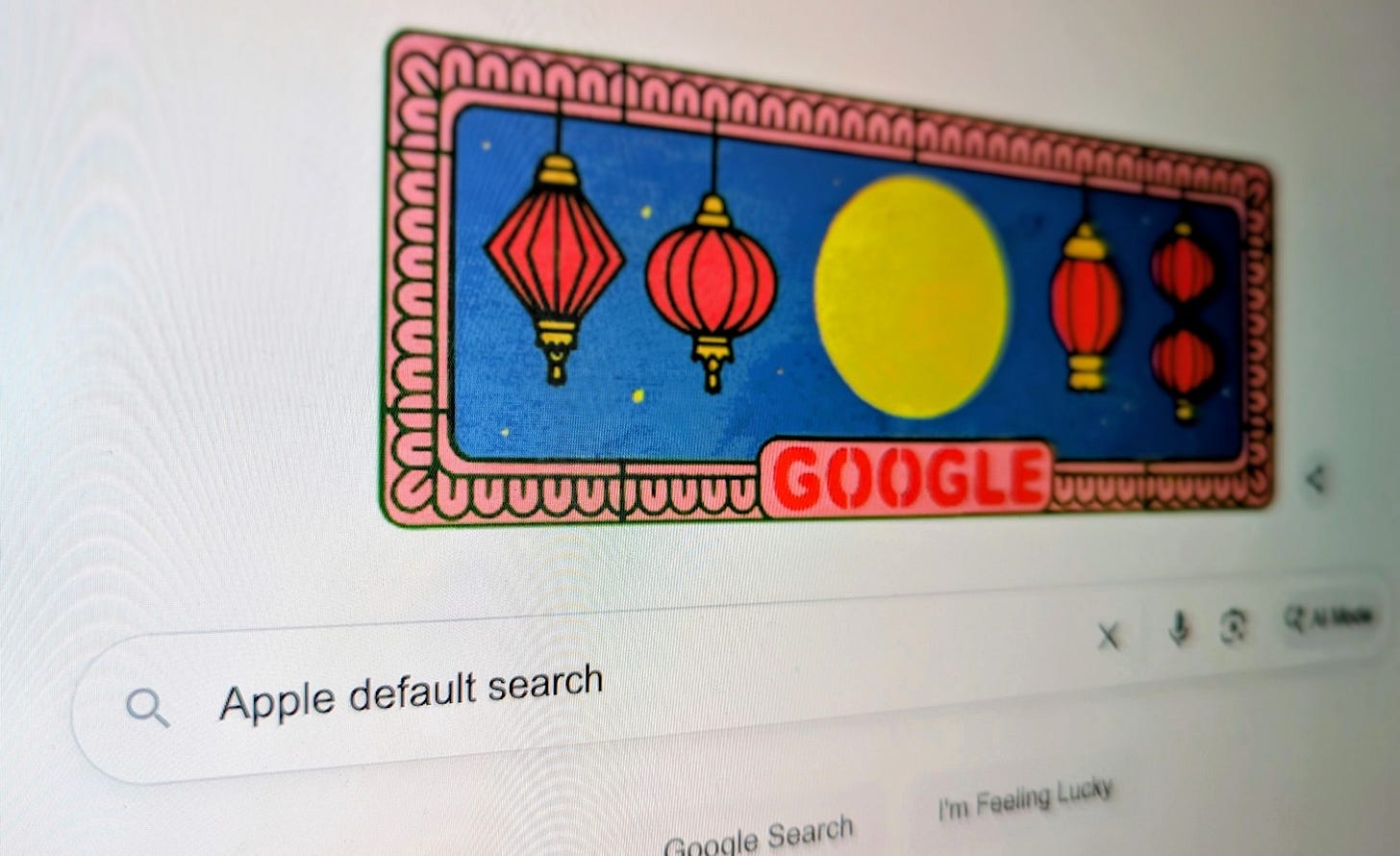It's David vs. Google in first test of Canada's new competition law
Court filing by indie game developer charges that the company's default search deal with Apple is killing competition online and hurting entrepreneurs
In what may be the most David-versus-Goliath lawsuit in Canadian history, not to mention the first test of one of the country’s updated competition laws, an independent video game developer is taking Google and Apple to court over their search engine deal – an agreement that “effectively curtails the competitive landscape” online.
The case, filed in June with the Competition Tribunal by Toronto-based developer Alexander Martin – known online as droqen – seeks leave to ban Google’s so-called Information Services Agreement (ISA) with Apple, in which the company pays the iPhone manufacturer more than $20 billion a year to list its search engine as the default option on devices.
The deal, Martin argues, is anti-competitive and forces businesses and individuals like him to comply with Google’s opaque search engine practices. As per the court filing:
“In the rapidly evolving digital marketplace, independent game developers face challenges in gaining visibility and attracting players. The overwhelming reliance on Google’s general search engine, which dominates the general search engine market, places developers at the mercy of Google’s algorithm, dictating the visibility of their games to potential players…
“Because of Google’s universality and ability to substantially control the business of general search engines, the Applicant is forced to adapt his advertising and online presence to be based on what will perform best with specifically Google’s search algorithm. In a competitive environment, the Applicant would not be faced with a singular and potentially fickle and capricious overseer of what customers can or cannot see.”
In the filing, Martin asserts that Google dominates the Canadian search market with a “staggering” 91 per cent share as of 2024, followed by Bing and Yahoo at 6.7 per cent and 1.9 per cent, respectively. Google has excluded competitors and fortified its position for years through anti-competitive actions such as the ISA with Apple, with payments to the hardware maker estimated at “upwards of $20 billion per year.”
The payments disincentivize Apple from creating its own general search engine and effectively neutralize a formidable potential rival. Google has also engaged in similar agreements with other device makers such as Samsung, web browser makers including Mozilla, and wireless carriers including U.S.-based Verizon and AT&T, according to the filing.
Berger Montague, the Toronto-based law firm representing Martin, says the case is important because it’s the first to test amendments to the Competition Act that came into force this past June. The new rules allow private individuals to bring abuse of dominance applications pertaining to the larger public interest to the Competition Tribunal.
The firm is indemnifying Martin for the case, meaning that it is paying for the action in exchange for proceeds from any monetary damages that may result. Albert Pelletier, a lawyer at Berger Montague, is surprised that the filing has yet to attract major media attention given its potential importance.
“It is a bit of a head-scratcher, since it is newsworthy,” he says.
The Competition Tribunal filing echoes a similar case that played out in U.S. courts over the summer. While U.S. District Court judge Amit Mehta ruled in August last year that Google was illegally monopolizing the online search market, this September he stopped short of killing the company’s search engine deal with Apple.
In responding to the Canadian Competition Tribunal filing, Google says Martin has relied entirely on the U.S. case and has “adduced no evidence to establish that any of those findings or materials are applicable in Canada.” Martin is also not a suitable representative to pursue monetary awards on behalf of others given “his obvious conflict of interest with a great many individuals and businesses across Canada that, unlike Mr. Martin, pay to place digital advertisements through Google.”
In its response, Apple points to a 2016 statement by the Competition Bureau that it had not found sufficient evidence that Google had engaged in anti-competitive conduct in regards to online search. “To date, the [Competition] Commissioner has not taken any such enforcement action since the conclusion of his prior investigation. [The Tribunal] cannot in the public interest to [sic] allow a private proceeding on the same issues in these circumstances.”
Google and Apple also both argue that Martin’s case should be rejected because of its similarity to several class-action lawsuits currently underway in Canada.
In his reply filed on Oct. 1, Martin cites the point of Parliament’s amendments to the Competition Act in the first place:
“The respondents ask the Tribunal to legislate several requirements for an applicant proceeding in the public interest, including that the applicant have sufficient expertise, resources, and a history of acting in the public interest. None of these factors appear in the text of the Act and, indeed, imposing such requirements is antithetical to Parliament’s goal of fostering private enforcement of the Act.”



